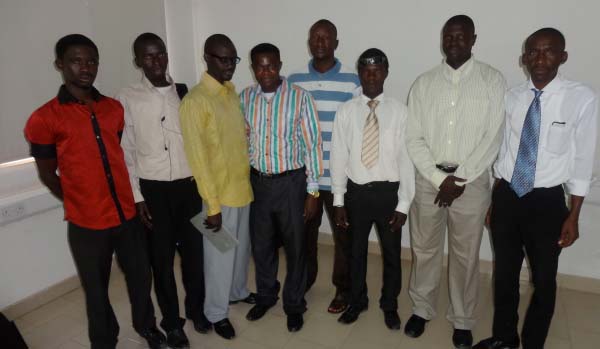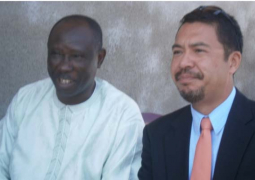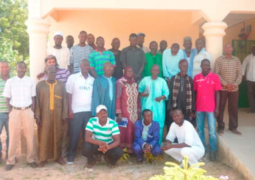
The event, held at the NMCP conference room in Kanifing, brought together participants from various media outlets in the country and senior members of the National Malaria Control Programme (NMCP).
While the global theme for this year’s WMD is ‘End malaria for good’, AMMREN Gambia’s subtheme is ‘The role of the media in eliminating malaria’.
Speaking on the occasion, the country coordinator of AMMREN Gambia, Momodou Faal, said WMD provides the opportunity for civil society organisations across the globe to showcase their work and share resources.
“More importantly, the day allows all stakeholders to engage in dialogue, contribute views, ideas and organise events to mobilise the world against malaria,” he said.
According to the World Health Organisation, in 2015, there were 214 million malaria cases worldwide with 438,000 deaths.Statistics shows that half of the world is at risk of the deadly but preventable disease, malaria.
“The good news, however, is that with the current available tools, malaria can be controlled,” Mr Faal said.“In fact some countries are on the path to eliminating the disease.”
The WHO Global Technical Strategy for Malaria estimates that it is possible to attain 90 per cent reduction in malaria incidence and mortality rates by 2030.
AMMREN Gambia coordinator said this will require innovations in tools and approaches such as effective engagement of the media in finding ways to deal with malaria.
Given the critical role the media play in the provision of timely and reliable information on health promotion in communities, AMMREN has been actively involved in education and advocacy programmes on malaria for nearly 10 years now.
AMMREN has since 2012 expanded its work beyond malaria, under its new initiative, AMMREN-plus.
Under this initiative, the organisation focuses on emerging issues of health, with particular attention to non-communicable diseases (NCDs) and emerging health threats such as the Ebola virus disease.
Mr Faal said AMMREN believes that when journalists focus on health reporting, it will help to fill the yawning gap between information sharing and feedback on health outcomes.
He further explained that this will ensure that policymakers, communities and development partners are on the same wavelength and ready to work together, to reduce the disease burden in Africa.
“The malaria war can only be won if communication is strengthened between health professionals and journalists to ensure that the public understand the current state of malaria interventions,” AMMREN Gambia coordinator said.
Presenting a paper on behalf of NMCP deputy programme manager, Lamin Jarju said there has been considerable progress in malaria control in the African region.
He said between 2000 and 2012, malaria cases fell by 31 per cent and deaths due to malaria by 49 per cent.
Research has it that the progress in malaria reduction has been largely achieved by a massive scaling up of malaria vector control with long lasting insecticide nets, and indoor residual spraying.
“Despite this progress, in 2012 there were 207 million malaria cases and 627,000 deaths; 90 per cent of these cases and deaths occurred in sub-Saharan Africa,” Mr Jarju said.
He affirmed that the NMCP and partners are determined to achieve pre-elimination target by 2020 in The Gambia.



